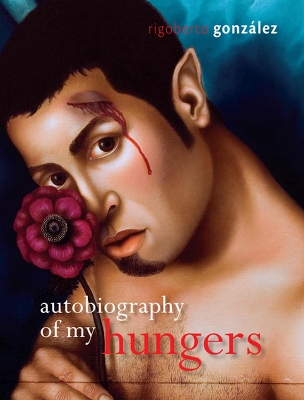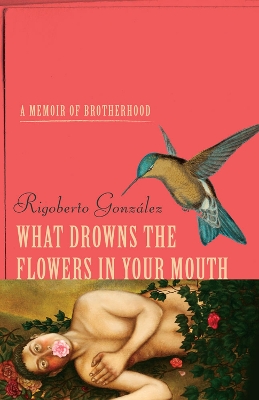Living Out: Gay and Lesbian Autobiographies
2 total works
Rigoberto González, author of the critically acclaimed memoir Butterfly Boy: Memories of a Chicano Mariposa, takes a second piercing look at his past through a startling new lens: hunger.
The need for sustenance originating in childhood poverty, the adolescent emotional need for solace and comfort, the adult desire for a larger world, another lover, a different body—all are explored by González in a series of heartbreaking and poetic vignettes.
Each vignette is a defining moment of self-awareness, every moment an important step in a lifelong journey toward clarity, knowledge, and the nourishment that comes in various forms—even ""the smallest biggest joys"" help piece together a complex portrait of a gay man of colour who at last defines himself by what he learns, not by what he yearns for.
The need for sustenance originating in childhood poverty, the adolescent emotional need for solace and comfort, the adult desire for a larger world, another lover, a different body—all are explored by González in a series of heartbreaking and poetic vignettes.
Each vignette is a defining moment of self-awareness, every moment an important step in a lifelong journey toward clarity, knowledge, and the nourishment that comes in various forms—even ""the smallest biggest joys"" help piece together a complex portrait of a gay man of colour who at last defines himself by what he learns, not by what he yearns for.
Burdened by poverty, illiteracy, and vulnerability as Mexican immigrants to California's Coachella Valley, three generations of González men turn to vices or withdraw into depression. As brothers Rigoberto and Alex grow to manhood, they are haunted by the traumas of their mother's early death, their lonely youth, their father's desertion, and their grandfather's invective. Rigoberto's success in escaping—first to college and then by becoming a writer—is blighted by his struggles with alcohol and abusive relationships, while Alex contends with difficult family relations, his own rocky marriage, and fatherhood.
Descending into a dark emotional space that compromises their mental and physical health, the brothers eventually find hope in aiding each other. This is an honest and revealing window into the complexities of Latino masculinity, the private lives of men, and the ways they build strength under the weight of grief, loss, and despair.
Descending into a dark emotional space that compromises their mental and physical health, the brothers eventually find hope in aiding each other. This is an honest and revealing window into the complexities of Latino masculinity, the private lives of men, and the ways they build strength under the weight of grief, loss, and despair.

